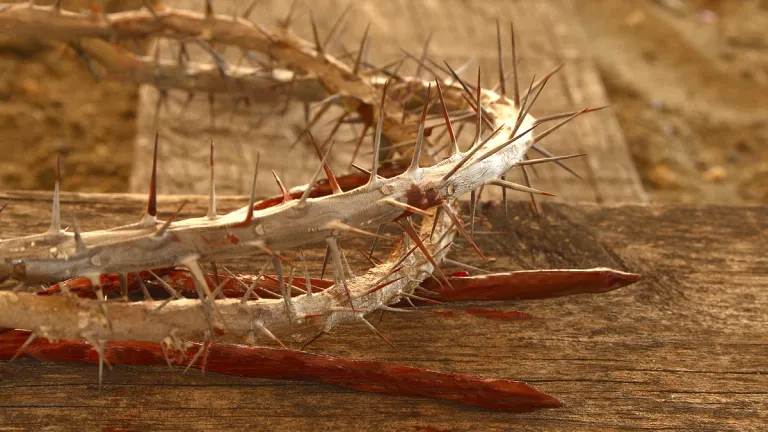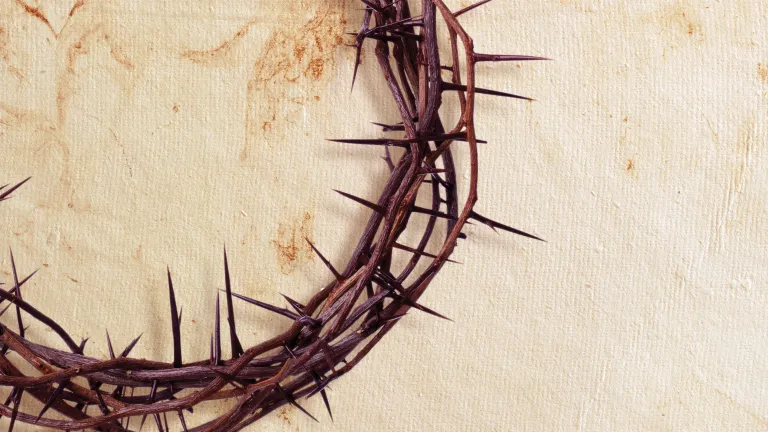Should Christians Observe the Passover?

Isn’t the Passover only Jewish, and not for Christians? Jesus Christ and the apostles kept the Passover. What does this festival mean for Christians today?
God commands that Christians observe this festival, which focuses on the redeeming work of Jesus Christ. It’s one of the seven annual festivals God revealed to ancient Israel to be His feasts (Leviticus 23:1-2, 4). The early Church continued to observe these, as will all nations in the future (see, for example, Zechariah 14:16-19; and read our study guide offered below for more on this).
Passover is the first of God’s annual festivals (Leviticus 23:5). Coming in early spring in the Holy Land, it’s a reminder, on one level, of how God spared His people from death in Egypt. As part of rescuing them from slavery there, God took the lives of all firstborn Egyptian males but passed over the Israelites’ homes that had the blood of a sacrificed lamb on their door frames (Exodus 12:7, 26-29). The Israelites had been commanded to eat of the lamb sacrifice with unleavened bread and bitter herbs (verse 8). Afterward they were to observe this as an annual memorial, which also came to traditionally include wine, a usual drink at festival times.
The blood of the Passover lamb foreshadowed the sacrifice of Jesus Christ, “the Lamb of God who takes away the sin of the world” (John 1:29). The apostle Paul directly states that “Christ, our Passover, was sacrificed for us” (1 Corinthians 5:7). In observing His last Passover with His disciples, Jesus set an example in washing His disciples’ feet, telling them they should also wash one another’s feet (John 13:1-17). And He explained that the unleavened bread and wine were to be partaken of in remembrance of His body and blood offered by Him for the forgiveness of our sins, sparing us from the penalty of death (Matthew 26:26-28; Mark 14:22-24; Romans 6:23).
Christ’s death came during the daylight hours following that evening—which was still the same date, the Passover, according to Hebrew sunset-to-sunset reckoning.
The New Testament Passover is a memorial of Jesus’ suffering and death. It’s a time for baptized members of God’s Church to renew our agreement to follow Christ, recommitting to turn from sin, relying on His sacrifice for forgiveness. We should approach this period with deep spiritual introspection (1 Corinthians 11:28). Passover is properly observed on the 14th day of the first month of the Hebrew calendar with a service based on the instructions of 1 Corinthians 11:23-28 and the Gospel accounts of the Passover observance Christ instituted.
Many have mistakenly assumed Jesus was instituting a communion service for each week or whenever one decides, based on a misinterpretation of Paul’s words: “For as often as you eat this bread and drink this cup, you proclaim the Lord’s death till He comes” (1 Corinthians 11:26). By “as often as,” Paul simply meant “every time,” not whenever we may determine. Jesus instituted this memorial in observing Passover, an annual occasion. Paul thus meant “every year you do this.” Each time, we remember Christ’s sacrificial death for us and that He will return, recognizing eternal life is possible only through Him. Jesus’ sacrifice is the starting point for salvation and the foundation of the feast days that follow. The next one is the Feast of Unleavened Bread.






